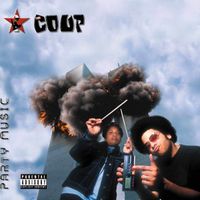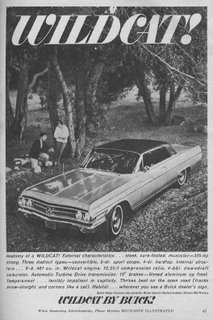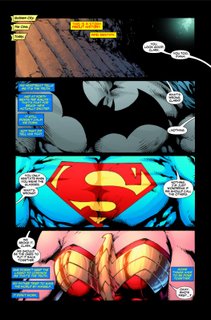Thursday, July 13, 2006
Alert Level Ivory: Watch Out For Marxist, Exploding Rap CDs
A couple of weeks ago Walter Kirn wrote for the NYT Book Review a take-down of The Din in the Head, Cynthia Ozick's new book of essays defending the novel from its alleged corruption at the hands of an increasingly relativistic, degraded society. Harold Bloom territory, basically. Kirn quoted this passage, which really stuck out to me:
Beyond that, it's fascinating to see how amazingly well terrorism can work regardless of how smart you are. I think that too often we imagine the "masses" recoiling in reactionary, self-protective fear from terroristic violence, but Ozick shows that intellectualism is no innoculation; in fact, it has led quite a few brilliant minds into this kind of wagon-circling raving, apocalyptic visions of dark riders from the east and south (and importantly, from within) ganging up with Sauron to burn down the Shire. As far as I can tell, those leading terror movements are mostly interested in real estate, while Ozick clutches her novels to her chest as if prying Henderson the Rain King from her fingers is Bin Laden's ultimate aim, and ousting the House of Saud is just a side benefit.
The divide between high culture and pop is on my mind lately, as I start preparing to guest-teach a month-long winter term class on graphic novels at my alma mater, an esteemed Northeastern private college. It's the kind of subject matter in the kind of setting that would, no doubt, drive Ozick to tears. Although it's possible that Cornel West would have to write a comic book for her to become aware of their existence. I'm nearly finished with David Carrier's philosophical work The Aesthetics of Comics, and I'm struck by the amount of text Carrier feels obligated to devote to basic defenses of the subject matter's academic worth. In just five years since this book was published, I think some of that defensiveness has given way. But to many scholars, I'm sure such a subject is still a clear signal that everything worth thinking about, everything worth preserving--all those Great Novels Ozick treasures and nurtures like innocent babies in their carriages--is being exploded by cultural suicide bombs.
 And just because I'm an anti-intellectual jerk, what I wouldn't give for the opportunity to sit Ozick down with a copy of the 2001 record Party Music by The Coup: the unreleased, original cover designed in June of 2001 had these Marxist rap artists blowing up the World Trade Center. Hat trick!
And just because I'm an anti-intellectual jerk, what I wouldn't give for the opportunity to sit Ozick down with a copy of the 2001 record Party Music by The Coup: the unreleased, original cover designed in June of 2001 had these Marxist rap artists blowing up the World Trade Center. Hat trick!
"A department of English is not the same as a Marxist tutorial. A rap CD is not the same as academic scholarship. A suicide bomber who blows up a pizzeria crowded with baby carriages is not the same as a nation-builder."Kirn characterizes this bit of hyperbole (although I doubt she means it as such) as "the canon as cannon, holding off the savages." Now, I haven't read the book, and I'm sure that Ozick's second sentence is specifically a dig at Cornel West and slackening intellectual standards. Also, according to strict logic, Ozick isn't necessarily equating Marxism, rap and suicide bombers, but...come on, of course she is. On one side of the divide, English departments, scholarship and nation-building are positive forces dedicated to generating and maintaining civilization. On the other side are the chaotic, thanatos-worshipping forces of leftist political dogma (elsewhere Ozick gives a dismissive backhand to Susan Sontag's politics), baby-killing terrorists, and, um, popular black music. As I said, I haven't read Ozick, so I can't go much past the statement itself. Perhaps I'm missing the context of the rest of the essay, where she discusses the merits of the Ultramagnetic MCs and Cold Crush Brothers. But I suspect she's not exactly down with Doug E. Fresh. And so I suspect that Kirn's characterization of her defending the canon against savages might resonate in more ways than one.
Beyond that, it's fascinating to see how amazingly well terrorism can work regardless of how smart you are. I think that too often we imagine the "masses" recoiling in reactionary, self-protective fear from terroristic violence, but Ozick shows that intellectualism is no innoculation; in fact, it has led quite a few brilliant minds into this kind of wagon-circling raving, apocalyptic visions of dark riders from the east and south (and importantly, from within) ganging up with Sauron to burn down the Shire. As far as I can tell, those leading terror movements are mostly interested in real estate, while Ozick clutches her novels to her chest as if prying Henderson the Rain King from her fingers is Bin Laden's ultimate aim, and ousting the House of Saud is just a side benefit.
The divide between high culture and pop is on my mind lately, as I start preparing to guest-teach a month-long winter term class on graphic novels at my alma mater, an esteemed Northeastern private college. It's the kind of subject matter in the kind of setting that would, no doubt, drive Ozick to tears. Although it's possible that Cornel West would have to write a comic book for her to become aware of their existence. I'm nearly finished with David Carrier's philosophical work The Aesthetics of Comics, and I'm struck by the amount of text Carrier feels obligated to devote to basic defenses of the subject matter's academic worth. In just five years since this book was published, I think some of that defensiveness has given way. But to many scholars, I'm sure such a subject is still a clear signal that everything worth thinking about, everything worth preserving--all those Great Novels Ozick treasures and nurtures like innocent babies in their carriages--is being exploded by cultural suicide bombs.
 And just because I'm an anti-intellectual jerk, what I wouldn't give for the opportunity to sit Ozick down with a copy of the 2001 record Party Music by The Coup: the unreleased, original cover designed in June of 2001 had these Marxist rap artists blowing up the World Trade Center. Hat trick!
And just because I'm an anti-intellectual jerk, what I wouldn't give for the opportunity to sit Ozick down with a copy of the 2001 record Party Music by The Coup: the unreleased, original cover designed in June of 2001 had these Marxist rap artists blowing up the World Trade Center. Hat trick!Tuesday, July 11, 2006
Wildcat!
 Over at the Treadmill, H has a wonderful post on every Batman/Wildcat team-up in the pages of The Brave and the Bold, as an add-on to his B&B index series.
Over at the Treadmill, H has a wonderful post on every Batman/Wildcat team-up in the pages of The Brave and the Bold, as an add-on to his B&B index series.It really goes way, way beyond the call of duty, (not that I'm complaining) describing each of the five issues in loving detail, excerpting Haney's most insane panels, ranking various aspects of the issues, such as 'Best Cat-O-Cycle Shot"--plus, I'm in there summing up the key ingredients for a perfect Brave and the Bold comic.
Wildcat was the guest-star in my first issue of B&B, which happened to be my first Batman comic, and he's always held a special place in the softest part of my head. He's kind of a low-key Wolverine, but who mercifully escaped ever being written by Chris Claremont. At any rate, the Wildcat B&Bs are worth tracking down, especially the Aparo issues.
